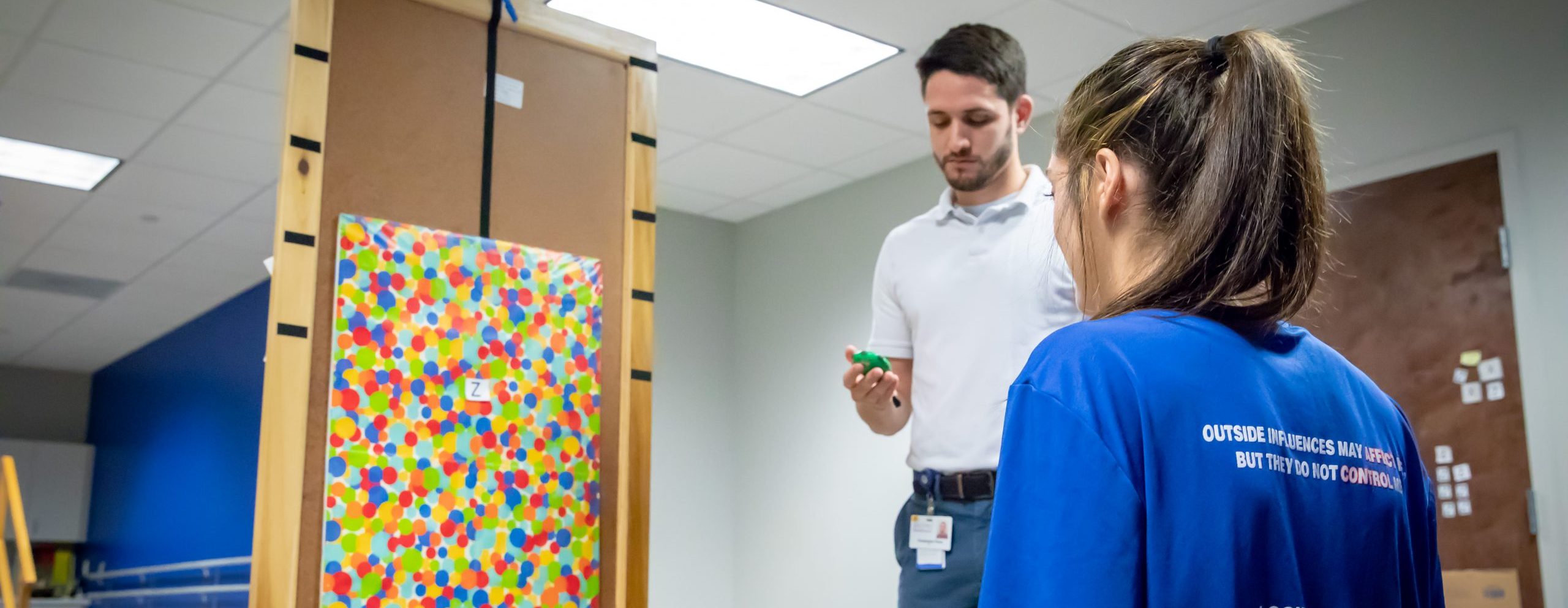Should I be concerned about a concussion? Insights from our Osceola Outpatient Clinic Experts

Back to physical health resource hub
Concussions are an injury most people in the U.S. have some familiarity with, whether it is a personal experience, a friend or family member, or an injured player on your favorite sports team.
Concussion is often the term we hear and use when speaking about a minor head injury, but concussions are also mild traumatic brain injuries (mTBI). The CDC defines a traumatic brain injury as an injury “caused by a bump, blow, or jolt to the head or by a hit to the body that causes the head and brain to move rapidly back and forth.”
After a concussion, symptoms may feel mild or acceptable because they feel temporary, however, symptoms may worsen over time if concussions are not assessed and treated properly which can create a lasting impact on daily activities.
How do I know if I have a concussion?
If you have had a fall, blow to the head, or jolt to the head and are experiencing symptoms listed below, you may have sustained a concussion. It is important to monitor your symptoms in the hours, and even days, after a potential concussion. Symptoms that may occur following a concussion are:
- Dizziness
- Blurred vision
- Feeling “foggy,” “hazy” or generally confused
- Memory problems
- Difficulty concentrating
- Fatigue
- Headaches
- Sensitivity to light
- Nausea or vomiting
What happens next?
If you believe your or a loved one have recently sustained a concussion, you should visit your primary care physician for a full assessment.
If your doctor has diagnosed you with a mild traumatic brain injury and you continue to experience feelings of confusion, haziness, difficulty concentrating or emotional changes, it may be beneficial to follow up with a concussion specialist such as a speech language pathologist (SLP) who has experience treating concussion.
SLPs are trained in the assessment and treatment of cognitive –linguistic issues such as, changes to memory, attention/concentration, planning, organization, impulsivity or problem solving. In some cases, cognitive changes are not always obvious and it may feel like “treatment” is not necessary. Memory, planning and attention issues can be easy to dismiss as occasional forgetfulness, difficulty concentrating, slower thinking, fogginess or other perceived minor problems,.
People may also experience social or emotional changes following a mild TBI. Increased frustration, interruptions, talking, inappropriate comments, off-topic conversation or impulsivity may be present. Decreased engagement in conversation may also occur.
Even mild changes can be addressed by a concussion specialist to improve your ability to successfully return to work, school and social activities. Specialists are available to help retrain cognitive and social skills, as well as, to provide support while the brain is recovering.
Mild TBIs can be confusing and frustrating. It can be difficult for others to see and understand the challenges you may be experiencing, but you are not alone. You can learn more about the Brooks Concussion Program or our Osceola clinic in Orlando, which specializes in treating concussion.


